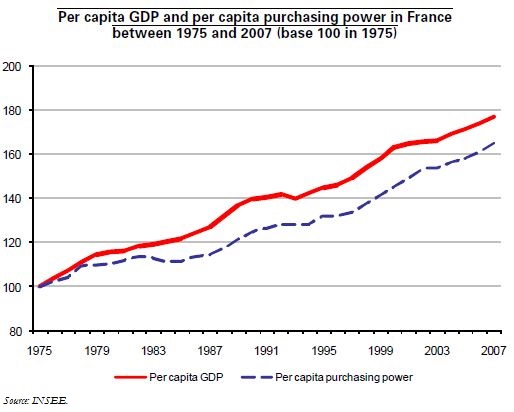Trésor-Economics No. 67 - Measuring economic performance and social progress: the findings of the Stiglitz-Sen-Fitoussi Commission
GDP cannot be regarded as the sole indicator of economic performance and social progress. This is the underlying finding of the Stiglitz Commission, which has made an unprecedented effort to study the entire body of theoretical and empirical literature devoted to measuring economic performance, quality of life, and environmental sustainability.
As an indicator of economic performance, GDP is in need of refinement. This notably involves taking the public services performed by the State, e.g. education, healthcare, etc., more fully into account. In addition, GDP fails to capture essential dimensions of economic performance, such as the depreciation of capital, households' standards of living, and inequalities. Specific indicators are needed in order to capture these dimensions. To measure living standards in particular, one needs to bring out the household perspective, from which it is possible to close the gap between objective measurements and public perceptions of them.
Social progress should not be measured from a purely material standpoint. Quality of life also depends on non-economic factors such as health, social ties, environmental conditions, the individual's subjective perceptions, etc. There is a need to develop indicators that would give us a clearer view of these aspects.
Finally, economic performance and social progress need to be assessed in terms of sustainability, i.e. measured against the well-being of future generations. The environmental dimension is essential. Many studies seek to measure the sustainability of our economies, although much remains to be done to derive a coherent methodology from them.
These findings are formulated in the Commission's twelve recommendations, and it is important that they should now be implemented. The success of this project implies concerted action on the part of the international organisations and national statistics offices.
